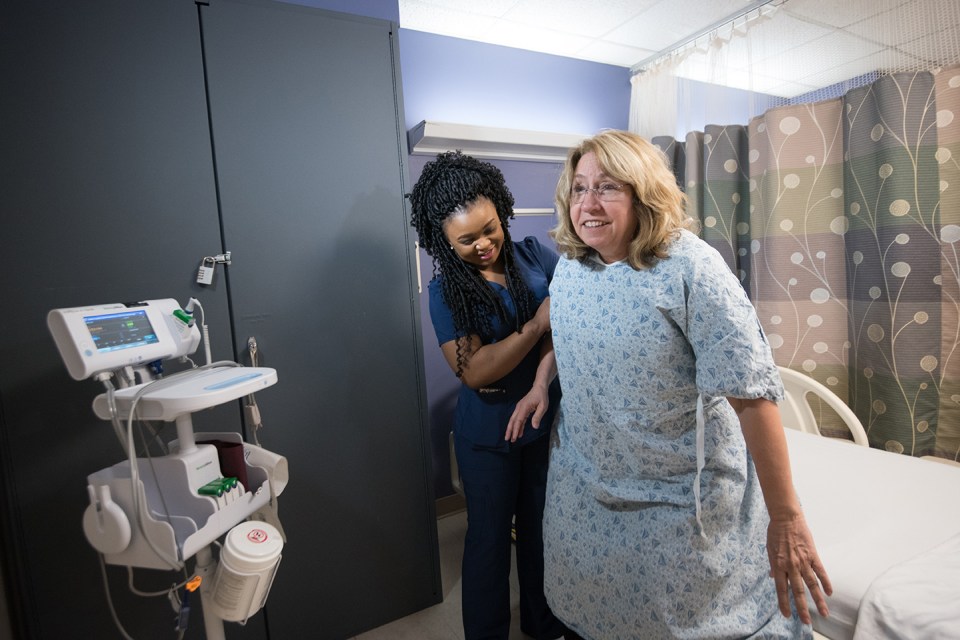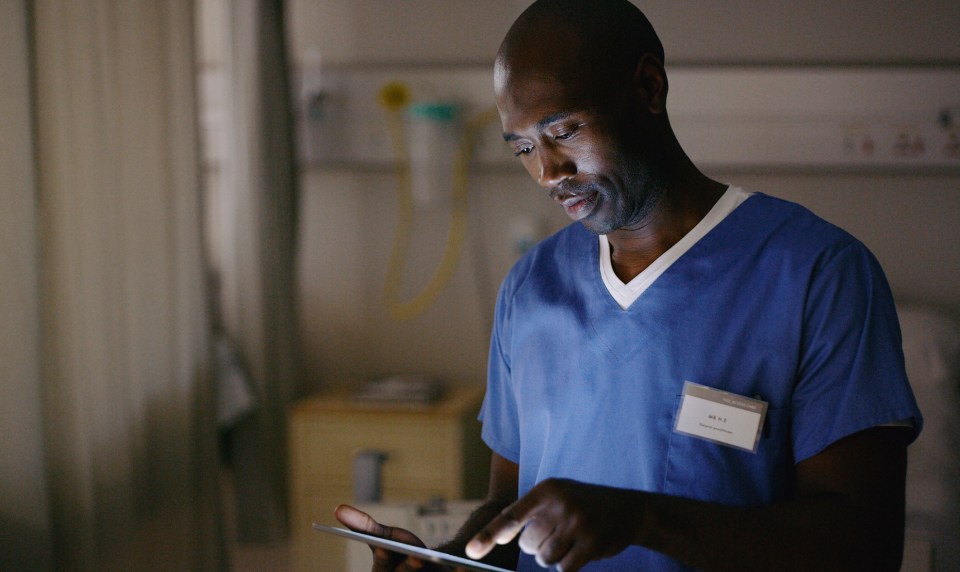Following a stroke or other life-changing illness, your doctor may refer you to inpatient rehabilitation. Where you receive this rehabilitation is your choice, and you’ll likely hear about the differences in care settings as you make your decision.
In the alphabet soup that is medical acronyms, CRRN may not be one you are familiar with, but it’s one that matters a great deal. CRRN stands for certified rehabilitation registered nurse and is the credential for nurses who have passed a national standardized test recognizing their knowledge in rehabilitation nursing. CRRNs assist individuals with disabilities and chronic illness to restore, maintain and promote optimal health.
When choosing your rehabilitation provider, don’t forget to ask about nursing care. Questions to ask include:
- What does nursing care look like at your facility?
- Does your facility have nurses who have specialized in rehabilitation?
Considering how CRRNs are beneficial to your care cannot only help you achieve more, but also help you be more confident in returning to your community after your stay.
“You may feel like your life is over, but a rehabilitation nurse, along with your therapy team, is there to show you it’s not,” said Chief Nursing Officer for Encompass Health’s West Region Beth Mooney, MBA, BSN, RN, CRRN. “A rehabilitation nurse helps patients learn how to do the things they once did, just as effectively, but maybe in a different way. They’re there to teach you how to live the rest of your life.”
Preparing for the future
Nurses in a traditional hospital care for the problem that presents itself then and there, whereas rehabilitation nurses—especially CRRNs—care for patients with an eye toward the future.
This forward-thinking, problem-solving mentality is a key component of the curriculum of the CRRN certification.
“When you look at rehabilitation nursing, we’re tasked with helping a patient return home at the highest functional level possible,” Mooney said. “Whether it’s a brain injury, stroke, or fractured hip, rehabilitation nurses aren’t only there to help medically, but they’re also there to help patients learn how to live the best life possible in the community.”
A deeper understanding
A nurse who obtains their CRRN has demonstrated a higher level of knowledge in the areas they are treating and are seen by others in their field as an expert. To do that, plain and simple, you’ve got to know a lot about the conditions you’re treating.
“You have a general surgeon, then you have a cardiac surgeon who specialized in heart surgery. Same with our nurses,” Mooney said. “We’re all licensed nurses, but CRRNs are specialized. By obtaining this specialization, these nurses demonstrate expert knowledge in their field.”
Among the many topics covered by the CRRN curriculum, rehabilitation nurses receive much education in bowel and bladder. Though not necessarily pleasing—or easy—to discuss, regaining bowel and bladder control after a life changing event is a big deal, and CRRNs are better prepared to help you do so.
Relationships that last
Rehabilitation nurses get the pleasure of standing alongside patients as they achieve victories, both large and small, Mooney said, and the connections formed between patients and their nurses last long after a patient has returned to their community.
“Developing those relationships is part of the healing process,” Mooney said. “To rehabilitation nurses, you’re more than the hip in room 100. We get to know Mrs. Jones for Mrs. Jones, and get to know her family along the way. It is very rewarding to know that you have positively impacted these patients and their families.”
The content of this site is for informational purposes only and should not be taken as professional medical advice. Always seek the advice of your physician or other qualified healthcare provider with any questions you may have regarding any medical conditions or treatments.



